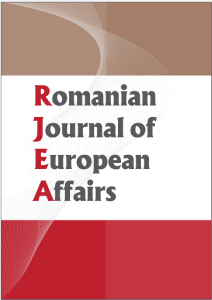Europe: patrimoine commun et/ou differences?
Claude Alain Karnoouh
Abstract:
This approach starts from the premise – stated and assumed by the Council of Europe – that, within the cultural area, the aim is to build a cultural unity between past, present and future. In the context, the question that arises is to what extent the European entity is a genuine cultural entity, namely a cultural community. This dilemma can be explored with the support of a series of details provided by the philosophical, historical and anthropological thinking. The instruments of this approach are used to analyse the impact of the new society on a heritage under change, bringing to the forefront the aporia of modernity in relation to tradition: in order to be modern, one has to de-construct; however, one’s historical conscience values the past and therefore the past has to be preserved. The modern “post-industrial” age, which is subject to the dynamics of the globalised techno-science, faces the arrival of a generalisation of ‘patrimonialisation’, which sets a new difference between Western Europe and ex-communist Europe.
Keywords: Council of Europe, culture, globalization
Economic Policy Co-ordination and Policy Regimes in the European Union
Stefano Micossi
Abstract:
In this article, it is argued that coordination of economic policies in the European Union has not led to a weakening of the role of the nation states in shaping their own economic policies. Rather, what can be witnessed is the prevalence of national policy goals through the discretionary implementation of the common rules at the expense of the simpler approach of minimal harmonisation. To support this argument, the author looks at the process of policy coordination in three major areas of the EU: Single Market, Economic and Monetary Union and Social Policies.
Keywords: Economic and Monetary Union, Single Market, Social Policy
Advancing at its Own Speed: a Trade Approach on Romania’s Convergence to the EU
Liviu Voinea
Abstract:
This paper analyzes the evolution of the Romanian trade with EU, based on a variety of indicators: Finger similarity index, Hirschmann concentration index, trade development index, revealed comparative advantage, intra-industry trade. The paper finds that the learning effect occurred in trade with EU, that the trade structure has been witnessing certain transformations, and that specialization appears to increase in technology-intensive products, in the fields dominated by the foreign capital; however, export concentration is rather high, while natural resource-intensive and low skilled labor-intensive products face severe competitive pressures. The results suggest that Romania’s foreign trade-driven convergence to EU is not spectacular, but it is happening at its own speed.
Keywords: convergence, Finger similarity index, Hirschmann concentration index, intra-industry trade, revealed comparative advantage, Romania, trade development index
Preparing for the Second Accession Round after Copenhagen – What Lessons Can Be Learned from the First Round of Negotiations?
Pjer Simunovic
Abstract:
As the title reveals it too, the article tries to deal with the enlargement process that the European Union is facing nowadays. The author focuses on the lessons that can be learned from the “First Round of Negotiations”, as these are of great importance for the countries that will not enter in the “Copenhagen Round” – Bulgaria and Romania, which have not yet been able to conclude the negotiations, Turkey, an “official candidate” but with whom the negotiations still have to begin and the “Stabilisation and Association Process” countries – Albania, Bosnia-Herzegovina, Croatia, Macedonia and Serbia-Montenegro. Taking into account that this is a less homogenous group than the “Copenhagen Round” group (in terms of their overall political, economic and social shape), the EU has to tackle with particular attention the future Rounds and to learn from the experience of the “Copenhagen Round”.
Keywords: accession, Bulgaria, enlargement, Romania, Stabilisation and Association Process






